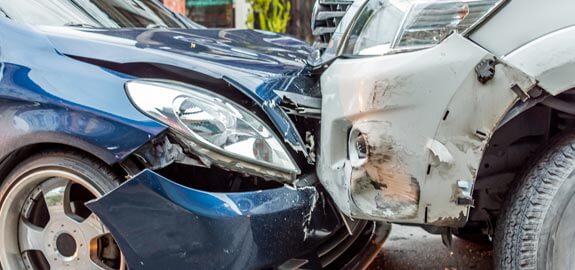Car Insurance Basics: What Does Full Coverage Cover?
Call (800) 641-7488 to learn more about what does full coverage cover..

Car Insurance Basics: What Does ‘Full Coverage’ Cover?
Every year, more than six million car accidents happen across the United States. To put it another way, every 60 seconds sees car accidents occur.
As a car owner, the cost of an accident can be multifaceted. There is damage to your vehicle, property, and your person. Aside from that, other road users might suffer injury and property damage as well.
To gain as much protection as possible, you can opt for full coverage auto insurance. But what does full coverage cover? Keep reading for a detailed guide that will demystify the term ‘full coverage.’
Understanding Full Coverage Car Insurance
The term ‘full coverage’ in auto insurance refers to the combined cover that several different policy elements provide.
These various policies include:
- Collision insurance
- Liability coverage
- Bodily injury
- Property damage
- Comprehensive insurance
- Uninsured motorist cover
- Personal injury protection (PIP) cover
While the law requires car owners to carry about half of these policies, many people opt for full coverage for enhanced financial protection.
Thus, even as you look for affordable insurance, you should weigh it against what you stand to pay out of pocket in a worst-case scenario.
What Does Full Coverage Include?
The interplay between several policies that work together to offer you full coverage is essential to understanding what the term ‘full coverage’ actually means. Here’s a deeper look at some of these policies:
Liability Insurance
Liability insurance is the most basic form of auto coverage you can have. As a result, the law requires you to at least carry liability insurance at a minimum if you are going to own a vehicle.
The focus for this type of cover is the damage you are at fault for and which you may inflict on another driver. To this end, liability insurance comprises of two elements:
Bodily Injury
Bodily injury (BI) coverage deals with paying for the injuries you cause other drivers after an accident when you are at fault. The insurance policy only covers the injuries of the other drivers (known as third parties) and not any injury you sustain (since you are the first party).
When looking to buy bodily injury insurance, you should purchase a limit equivalent to the assets you have.
Property Damage Liability
With property damage (PD) liability, you pay for the harm you cause to other people’s property. The policy will, therefore, not pay for damages to your property in case of an accident where you’re at fault.
Since this coverage is relatively inexpensive, it is advisable to get the highest limit you can for extra protection.
The minimum level of liability coverage each state institutes is typically represented in a numerical format such as 25/50/25.
Here, the first number represents the limit of your bodily injury per person, with the middle figure representing the overall limit for an accident. The third figure then represents the limit for your property damage cover.
Uninsured or Underinsured PD and BD Coverage
Your liability insurance covers the damages when you are at fault. But what if the other driver is the one at fault and has little or no coverage at all?
The uninsured and underinsured policy cover is designed to help you foot the bills for your vehicle and property in such a scenario.
The only variation in applying the two is that with the underinsured cover, you will first need to apply up to the insurance limit of the other driver’s policy. Only after you exhaust that will your underinsured policy make up the shortfall.
Some states make it a must for you to carry a variation of these two policies. In other states, however, purchasing these two covers is optional.
The amount of underinsured and uninsured coverage limits you have will generally reflect your BI and PD liability limits.
Collision Insurance
Collision insurance covers the damage your car suffers when it crashes either into another vehicle or a fixed object. No matter who is at fault, you can file a claim on collision insurance.
“
With collision insurance, you don’t have to wait for the other driver’s policy to compensate you. However, this is a double-edged sword as it makes collision coverage rather pricey. At times up to 50% of the insurance bill can comprise collision insurance.
Thus, the kind of deductible you get influences the overall cost of your collision insurance. To get lower premiums on this coverage, you can opt for high deductibles.
The law does not compel you to purchase collision insurance, but if you plan to lease a car, the leasing company might make it a requirement.
Comprehensive Coverage
Comprehensive insurance cover is designed to pay for damage to your vehicle due to ‘Acts of God’ or other external causes that don’t include car crashes. Examples here include a tree branch falling on your car, vandalism, theft, acts of terrorism, among others.
As with a collision policy, your cover will kick in once you pay the deductible. You also have the option to male your comprehensive insurance premium smaller by opting for a higher deductible.
In case you are using a leased car, the leasing outfit can also make getting comprehensive insurance a requirement in their agreement.
Personal Injury Protection Coverage
Personal injury protection (PIP) coverage is a first-party policy that pays for any medical costs you incur after an accident. In addition, PIP also reimburses you for the wages you lose due to an accident alongside other expenses.
If you had any passengers with you when the accident occurred, PIP would also cater to their medical expenses. PIP will pay out no matter who is at fault in the accident.
For many people, PIP has several similarities to their health insurance, and as such, you can buy the former to complement the latter.
Some states make PIP mandatory with variable limits. Therefore, if you live in a state where PIP insurance limits are low or where it costs a lot more to buy PIP coverage, then getting health insurance is essential.
Protect Yourself from Unexpected Bodily Injury and Property Damage
Motor vehicle accidents can wreak havoc on your life and finances in an instant.
While you can comply with the legally mandated auto insurance minimums, taking on more enhanced protection can only be a plus for you. To know which combination of policies offers optimum protection, you must ask and answer the question, “What does full coverage cover?” correctly.
Insured ASAP is passionate about offering fast and affordable insurance policies to drivers, renters or homeowners and small business owners. Reach out to us today to protect yourself with the most suitable coverage.






